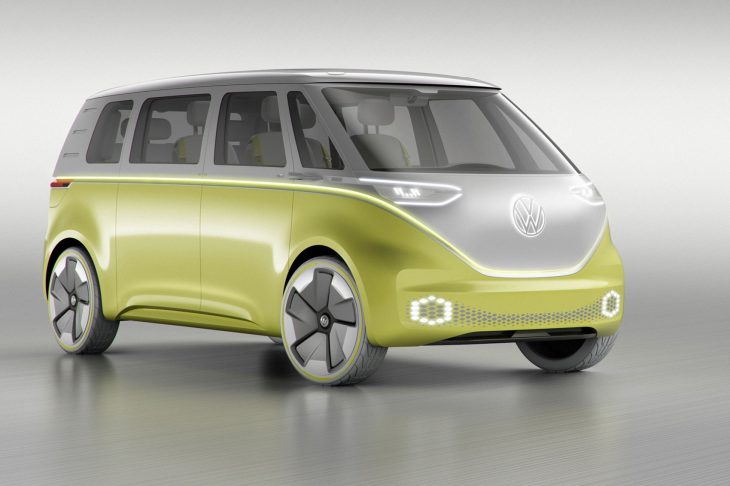
LAS VEGAS – Chipmaker Nvidia is continuing its relentless push into the nascent autonomous vehicle market announcing partnerships with Uber, Volkswagen and China's Baidu at CES.
The company also launched its long-awaited Xavier AI chip made for self-driving vehicles that Nvidia initially announced in 2016. Xavier is the world’s most powerful System-on-Chip (SoC), claims Nvidia, and can process huge amounts of data from sensors inside and outside of the vehicle to understand who is approaching it, who's inside, and what they're doing.
All this processing must be done with multiple levels of redundancy to ensure the highest level of safety. The computing demands of driverless vehicles are easily 50 to 100 times more intensive than the most advanced cars today.
Volkswagen CEO Herbert Diess and Nvidia founder and CEO Jensen Huang took to stage to announce that Volkswagen will use Nvidia’s Drive IX platform in some of its upcoming vehicles, including the I.D. Buzz electric bus (pictured). Drive IX is a software developer kit that Nvidia developed to leverage the power of Xavier. It can create AI-enabled applications such as facial recognition for automatically unlocking and opening the vehicle, surround perception to alert the driver to potential hazards, gesture recognition for user controls, natural language understanding for flawless voice control, and gaze tracking for driver distraction alerts.
“In just a few years, every new vehicle will be expected to have AI assistants for voice, gesture and facial recognition as well as augmented reality,” Huang said. “
(Ed note: FWIW, this is the new environment in which radio will be severely challenged with maintaining a niche.)
Huang also announced that Uber will be adding Nvidia technology for its Advanced Technologies Group fleets of self-driving cars and freight trucks. Uber began working on self-driving technology in early 2015.
“The future of transportation will be transformed by mobility services. Convenient, affordable mobility-as-a-service will reshape cities and society, and help support the billion-person increase in the world’s population over the next decade,” said Huang. “Autonomous vehicles are the critical technology to making mobility services pervasive. We’re thrilled to be working with Uber to realize this vision.”
Nvidia will also be partnering with Baidu and ZF on an autonomous-car technology platform designed specifically for China.
John Bugailiskis is Cartt.ca’s consumer electronics editor and is in Las Vegas this week for the Consumer Electronics Show.



